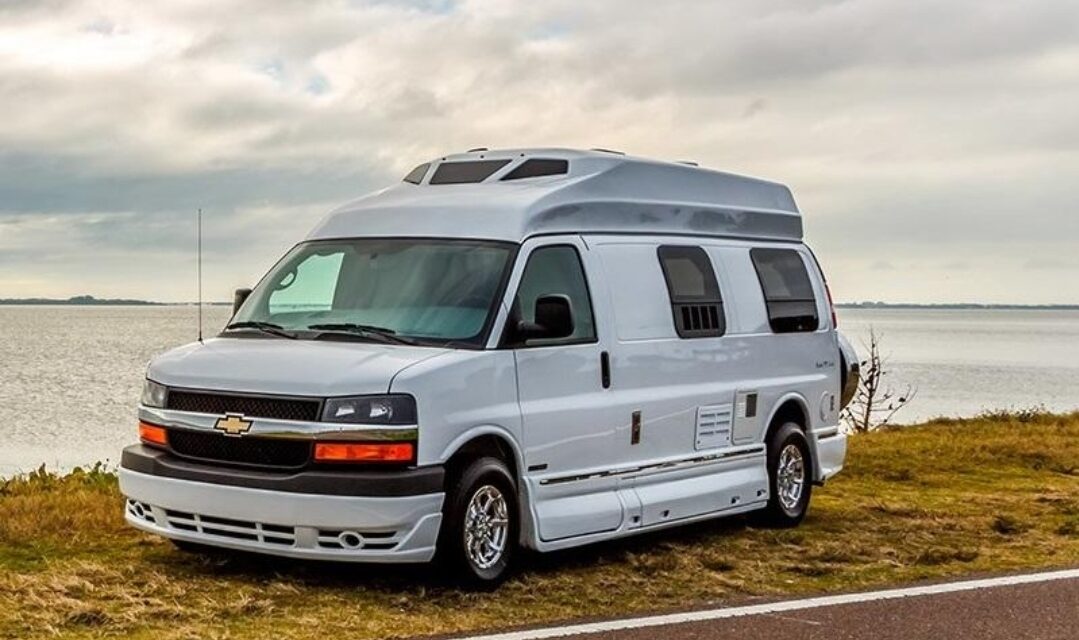What is a Class B Motorhome?
The Class B is the smallest motorhome on the market. Picture a Chevy, Ford, Mercedes-Benz, or Dodge cargo van stuffed to the brim with household amenities: kitchenettes, small bathrooms (often wet baths, which is a compact space that contains the toilet and shower in one area), sleeping areas, and basic appliances. Measuring between 18 and 24 feet long, these compact RVs are the easiest to drive and park, making them ideal for RV newbies and urban explorers alike. Some adventurous souls even use them as daily drivers, proving that versatility is key.
Fuel Efficiency: The Class B Advantage
The Class B also boasts the best fuel mileage in the motorhome world—15 to 20 miles per gallon! Compare that to the gas-guzzling Class C and Class A rigs, which only dream of 8 to 12 mpg (on a downhill slope with a tailwind).
Downsizing for the Class B Lifestyle
That said, embracing the Class B lifestyle means embracing minimalism. The living quarters are tiny. Kitchens? Small. Bathrooms? Smaller. Holding tanks for fresh, gray, and black water? Let’s just say you’ll get very familiar with campground dump stations. This cozy class is perfect for one person—or two, if you’re exceptionally close.
The Price of Compact Luxury
Now, about the price tag. Despite their petite size, Class Bs pack a heavyweight punch to your wallet. Why? Because motorhome manufacturers first buy a complete van and then engineer all the RV features into it. The result? A price range that’ll make your eyes water: $80,000 to $200,000.
Is the Class B Right for You?
Still, if you’re ready to downsize without sacrificing mobility and adventure, the Class B might just be your perfect travel companion!
Next Up: The Class B+
Must-Have RV Accessories: Surge Protector
Let’s be clear: RVs are not just vehicles—they’re electrical minefields on wheels. With smart TVs, monitoring systems, self-leveling gadgets, and air conditioners more temperamental than your Uncle Bob, protecting those circuits is vital.
Picture this: you’re halfway through streaming your favorite show, sipping coffee from your electric maker, when ZAP—a power surge fries your electronics. Goodbye, fridge. Farewell, air conditioner. Adieu, sanity.
A surge protector is your best friend here. Not only does it guard against surges, but it also keeps an eye on low voltage, shutting things down if the campground’s power supply decides to take a nap. Sure, it costs a bit, but it’s cheaper than a new RV wiring job—or a lifetime of cold sandwiches.







